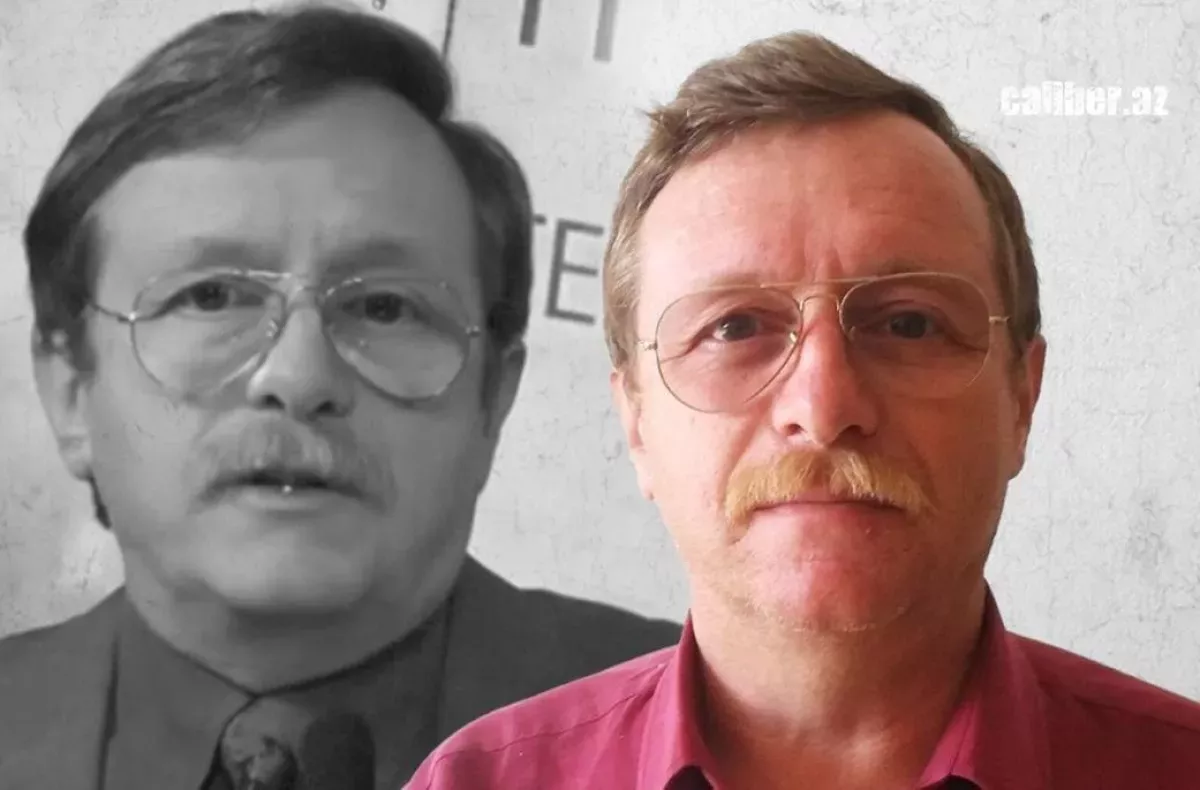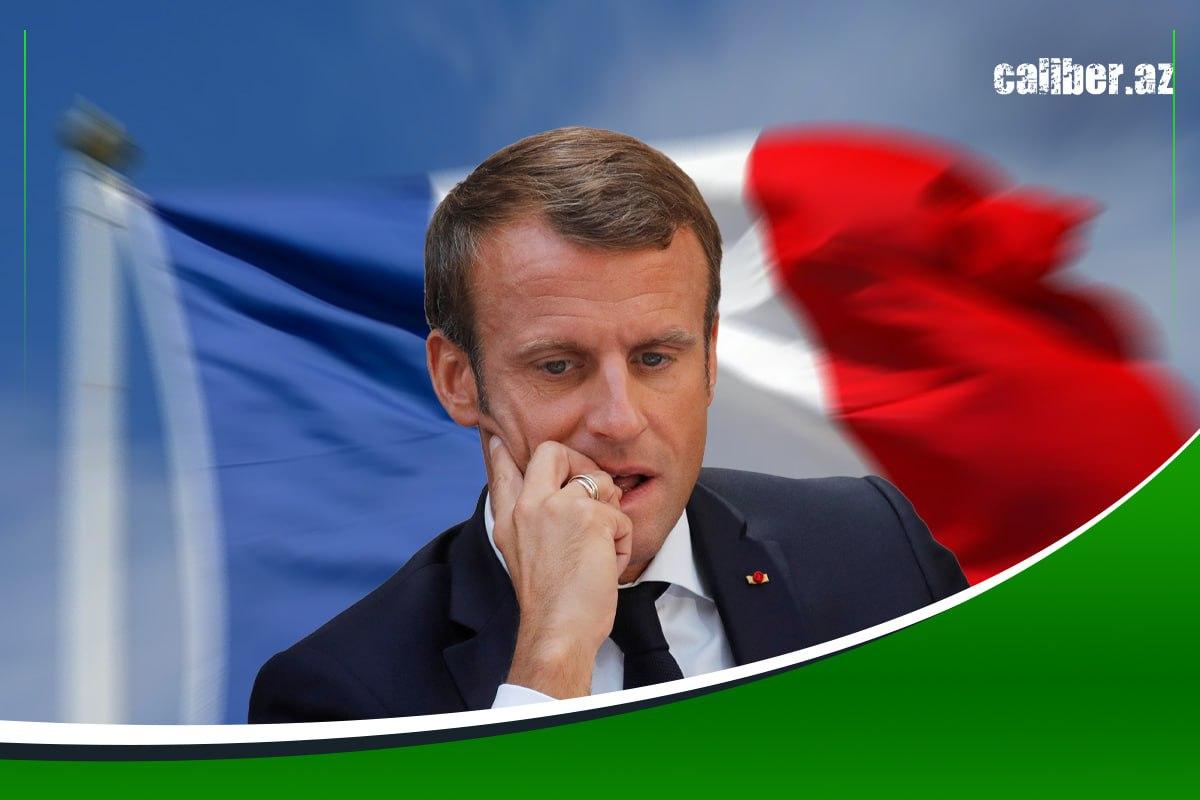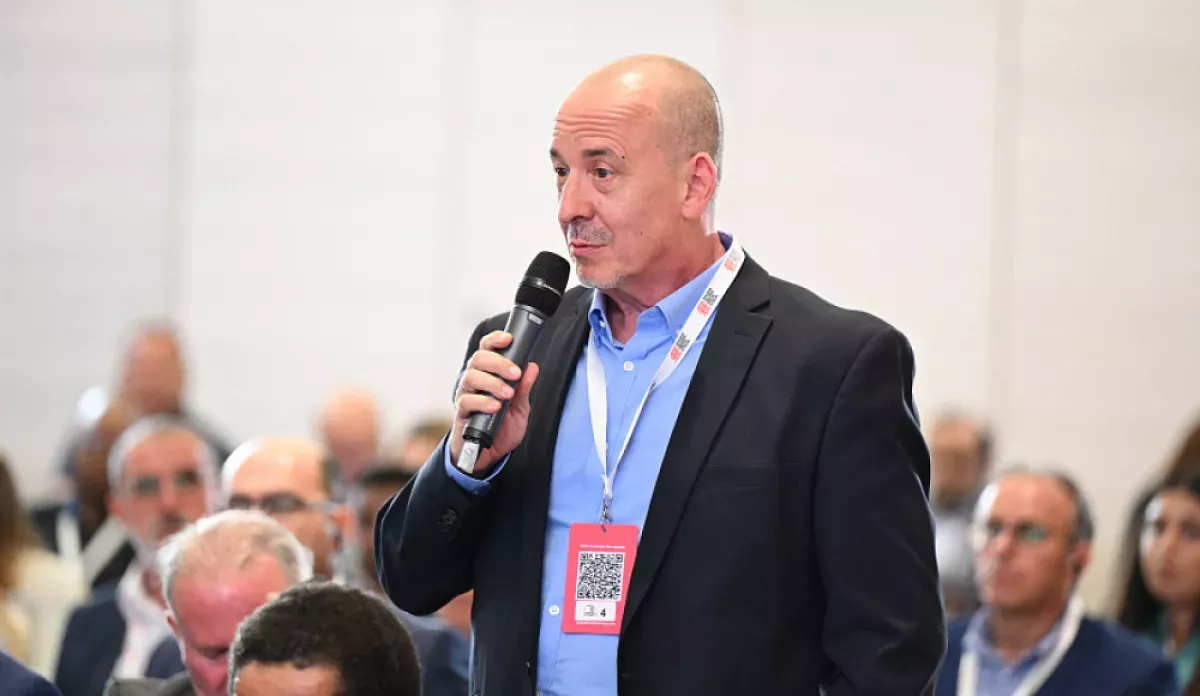Macron unwelcome in Israel Analysts cite political motives
Israeli Prime Minister Benjamin Netanyahu has denied French President Emmanuel Macron entry into the country. According to Israeli media, he took this step following Macron’s statement about his intention to recognise Palestine as a state at the UN General Assembly in September. It is also reported that the Israeli prime minister sent a message to Macron, emphasising that, in order to visit Israel, he must abandon this intention.
What is Macron hoping to achieve by acting as a mouthpiece for anti-Israel sentiment in the West? What is the essence of Paris’s policy, which has decided to sharply escalate tensions with Tel Aviv and Washington, and what do people in Israel itself think about this? Israeli political analysts provide answers to these questions for Caliber.Az.
Alexander Gur-Arie, a political commentator for the Israeli TV channel ITON.TV, believes that Emmanuel Macron is in a very difficult position, and that his liberal-socialist coalition is collapsing in France. Moreover, the Fifth Republic faces serious economic problems.

“Macron has absolutely nothing to boast about. All his attempts to resolve the conflict between Russia and Ukraine have ended in failure: everyone remembers his hysterical calls to Putin over every little issue and the total collapse of his initiatives. As a result, the French president has nothing to show his voters. Moreover, we understand that Macron is already a lame duck. The elections are approaching, and he cannot run for a third term,” the political analyst noted.
In his view, there are only two things that currently concern Macron. The first is his own political obituary: “He is quite young, but nonetheless, it is very important to him how his actions as President of the French Republic will be described in his biography.
The second is that he needs to somehow save his party, of which he is the leader and which propelled him to the Élysée Palace. All of this forces him to make utterly extraordinary efforts to make a statement about himself and try to present himself as a leader of the European Union. Let me remind you that France is currently the only country in the EU with nuclear weapons. There used to be the United Kingdom as well, but as we know, it left the EU. Therefore, Macron is making every possible effort to appeal to his electorate and attempt something high-profile,” the analyst said.
In his view, the joint plan by Saudi Arabia to solemnly convene a conference and announce at the UN General Assembly the recognition of a Palestinian state looks very impressive on paper and will remain on the front pages of newspapers for a considerable time. And this is precisely what the French president is seeking to achieve.
“The question is, how can this actually be done? In all his statements, Macron emphasises the need to end the war in Gaza, free the hostages, and disarm Hamas. But how is the recognition of a Palestinian state connected to the disarmament of Hamas? In reality, these are mutually exclusive goals, because the group repeatedly calls its actions ‘a great Hamas victory’ in all its propaganda videos. In other words, the attacks on Israel and the massacre of 7 October 2023 are exactly the factors that prompted France and many other European and non-European countries to recognise a Palestinian state,” the expert stressed.
It turns out that all of the French president’s actions end up playing directly into Hamas’s hands.
“The very fact that Macron’s actions are welcomed by Hamas already raises questions. What should a European state leader even look like if his steps and statements are openly praised by an organisation legally designated as a terrorist group in his own country? Clearly, this indicates that he is doing something wrong if terrorists are applauding him and tipping their hats in his honour.

We have seen many paradoxical and even amusing examples when terrorists who were supposed to be released as part of prisoner exchanges refused to leave Israeli prisons. They were comfortable there: they received good food, education, and their families were fully supported by these payments. Therefore, the letters and promises Mahmoud Abbas sends to France are no different from Yasser Arafat’s assurances during the Oslo agreement era. All of it is blatant falsehoods, worth next to nothing. It is no wonder that Israeli Foreign Minister Gideon Saar responded to a tweet by his French counterpart by urging him to consult his own intelligence services. French intelligence is fully aware that payments to terrorists continue—they are just classified differently. The question arises: ‘Is the French minister being deceived, or is he consciously misleading the public himself?’
In light of all this, the French president decided to visit Israel and the region, apparently hoping to step into the spotlight and present his peace initiatives. But Israel rejected this initiative, stating that he is currently an unwelcome guest. This is very telling, because the visit would have been carried out not just for a photo opportunity for journalists, but to protect France’s strategic interests. Paris traditionally considers Lebanon and Syria as zones of its vital interests, as former colonies, but undertaking any political steps there without Israel’s participation is impossible. Hence, France realised that it urgently needs to correct the situation and try to restore relations with Tel Aviv,” the political analyst said.
He also emphasised that all efforts by the French side had proven unsuccessful.
“Israel has rejected all attempts by Macron and his administration to smooth over the situation. Therefore, the French president, whom I have already called the ‘Gallic rooster,’ is now forced to do everything he can to mitigate the consequences of his clumsy moves and avoid completely burning bridges with Israel. After all, any projects that France wants to implement in the Middle East now or in the future cannot be realised without coordination with Israel. This is a political reality that Paris is forced to acknowledge, despite all diplomatic manoeuvres,” concluded Alexander Gur-Arie.

In turn, the honorary ambassador of the World Jewish Agency “Sokhnut,” Israeli political analyst and journalist Roman Gurevich, noted that understanding the political logic behind Emmanuel Macron’s actions is extremely difficult, as his course is marked by rare inconsistency.
“For example, upon arriving in Israel immediately after the terrorist attacks, he spoke of full support for the Jewish state in its legitimate fight against terrorism, yet the very next day in France, he made a statement directly opposite to that. Therefore, it is reasonable to assume that all of Macron’s policies are aimed solely at staying in power and surviving as long as possible in the political arena. This explains his inconceivable zigzags. Some experts believe that France is in crisis, and the internal situation could lead to new outbreaks of instability. I am not claiming this amounts to civil war, but we have seen protests and riots escalate into serious clashes. And this could happen again, not only in Paris.
Macron would be better off focusing on domestic issues rather than escalating tensions with other countries. For example, it is completely unclear what he hopes to achieve by confronting the American administration. It has always been unwise to sour relations with the United States, and when the president of the United States is Donald Trump, such behaviour carries potentially very unpleasant consequences for France,” the analyst said.
He also commented on the topic of the French leader’s planned visit to Israel.
“Macron did intend to come to Israel, as confirmed by both Israeli sources and representatives of French political circles. He wanted to fly here urgently, before the start of the UN General Assembly, where he plans to officially announce the recognition of Palestine as a state. In my view, Prime Minister Benjamin Netanyahu was entirely justified in saying that ‘if Macron comes, he should publicly declare here, on our soil, a categorical renunciation of recognising Palestine. In that case, Israel is ready to welcome him warmly, as good guests are always welcome here. But if someone comes to us and then inflicts serious damage on our country, why would we need such guests?’” the expert noted.
Gurevich emphasised that Israel’s reaction in this case was entirely understandable.
“Remember the saying: ‘We don’t need rude people; we are rude enough ourselves’? Israel is by no means rude—we are hospitable and generous with our friends. But Macron is not acting like a friend, and therefore he should not be surprised by the reaction he received. Israel does not want to see him here, and this has become yet another slap in the face for him. Although, it must be admitted, he has already become accustomed to such treatment,” Gurevich concluded.








